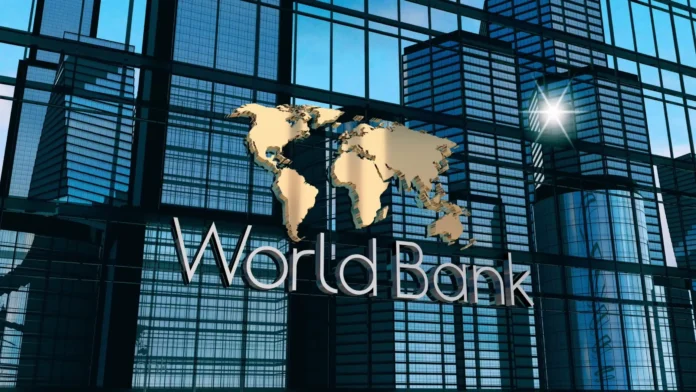By The National Patriots.
October 2025
1. “Stabilized, But Still Starving” — The Paradox of Nigeria’s Reforms
Excerpt:
Nigeria’s macroeconomic metrics have improved — foreign reserves rising, debt ratios falling, GDP rebounding — yet 139 million Nigerians remain in poverty. The contradiction is stark: while financial stability strengthens, human survival weakens.
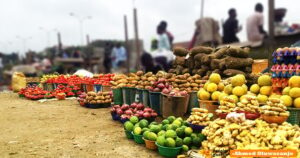
Quote — World Bank (Mathew Verghis):
“The true measure of success will be how these reforms improve the daily lives of Nigerians — especially the poor and vulnerable.”
Comment:
The World Bank applauds the government’s “bold steps” but fails to confront the deeper truth: stabilization without inclusion leaves citizens stranded. An economy is only as strong as the people living in it.
2. “Reforms by Necessity, Not by Choice” — Tinubu’s Bitter Medicine
Excerpt:
President Tinubu inherited an unsustainable system of subsidies, forex distortions, and crippling debt. His reforms — while painful — were born out of economic desperation, not arrogance.
Quote — President Bola Ahmed Tinubu:
“Nigeria did not embark on these reforms out of luxury or pride — we did so out of necessity. The old system was collapsing under its own weight… It was a bitter choice, but the only responsible one.”
Comment:
Tinubu’s realism reflects leadership under duress. Yet, the burden of recovery has fallen on those least able to bear it — the poor and middle class. Structural reform without social protection is a road to ruin.
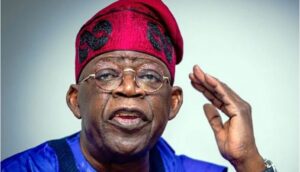
3. “The Conditionality Trap” — When Help Comes With Handcuffs
Excerpt:
Loans from the World Bank and IMF came with conditions: remove subsidies, raise taxes, shrink government spending, and float the naira. These “safeguards” promised stability but delivered suffering.
Quote — IMF (Axel Schimmelpfennig):
“Nigeria’s reforms are beginning to yield results, but the gains have yet to benefit all Nigerians. It is crucial to protect the vulnerable while maintaining macro stability.”
Comment:
It’s an admission wrapped in diplomacy. The IMF demands austerity, then warns of inequality. Conditionality remains the silent killer of public welfare — protecting creditors while choking citizens.
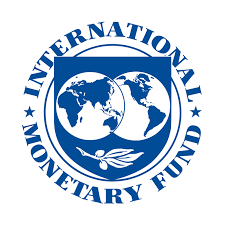
4. “Austerity as Policy: Lessons from Latin America”
Excerpt:
From Argentina to Peru, IMF-backed austerity has left a legacy of inequality. In the 1990s, Argentina’s reforms led to default and mass poverty. Peru’s 1988 “shock therapy” caused inflation, hunger, and unrest before recovery slowly followed.
Quote — Former Peruvian President Alejandro Toledo (2003):
“We followed every IMF rule, but hunger doesn’t obey economics. Stability means nothing when your people can’t eat.”
Comment:
History repeats itself. Latin America shows that when reforms ignore human welfare, they don’t stabilize nations — they destabilize them.

5. “Africa’s Cautionary Tales” — Ghana, Zambia, and Kenya’s Pain
Excerpt:
Across Africa, austerity has produced temporary fiscal wins and long-term social losses. Ghana’s IMF wage ceilings gutted its health system; Zambia’s budget cuts stalled development; Kenya’s subsidy removals triggered riots.
Quote — Former Ghanaian President John Mahama:
“The IMF gives you the crutches, but insists you run before you can walk.”
Comment:
From Accra to Lusaka, leaders have learned that IMF “help” often hurts. Nigeria must break this cycle by demanding reforms that serve citizens first, not spreadsheets.
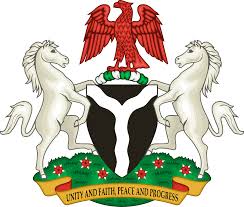
6. “Global Hypocrisy: When Institutions Lament Their Own Designs”
Excerpt:
The World Bank and IMF now express concern that Nigerians “aren’t feeling the gains” of policies they themselves prescribed. Meanwhile, other global bodies — including the UN and WTO — are urging a rethink of economic orthodoxy.
Quote — WTO Director-General Ngozi Okonjo-Iweala:
“Reform must never be about balancing books alone. If people cannot afford food or fuel, then policy has failed its ultimate test.”
Comment:
Even multilateral voices now concede that human-centered economics must replace blind fiscalism. The hypocrisy of austerity is finally being called out from within.

7. “Nigeria’s Moral Voice: A Princess Speaks for the People”
Excerpt:
Outspoken Nigerians are rejecting the idea that pain is progress. Princess Gloria Adebajo-Fraser, MFR, captured the national mood with rare clarity, calling out the contradiction between praise abroad and poverty at home.
Quote — Princess Gloria Adebajo-Fraser, MFR:
“It is hypocritical for the World Bank and IMF to lament that Nigerians are not feeling the gains of the reforms when they imposed the very conditions that deepened this hardship. You cannot tighten the rope around a nation’s neck and then complain that it struggles to breathe.”
Comment:
Her statement resonates across class lines. It’s not ideology — it’s truth. Reforms should not crush those they claim to rescue.

8. “Reform the Reformers” — A Call for Renegotiation and Renewal
Excerpt:
Countries like Pakistan, Zambia, and Argentina have renegotiated IMF terms to ease the social pain of austerity. Nigeria can too — by demanding flexibility and insisting that fiscal recovery must include human recovery.
Quote — UN Secretary-General António Guterres:
“We must reform the international financial architecture so that it serves people, not markets. A just economy begins where debt no longer crushes dignity.”
Comment:
The call is global: end debt injustice. Nigeria’s government must use its leverage to renegotiate — not beg, but bargain — for humanity’s sake.

9. “BRICS Entry: A Strategic Pivot, Not Just Posturing”
Excerpt:
President Tinubu’s decision for Nigeria to join BRICS signals a deliberate pivot away from Western financial dependence. It’s a move toward multipolar engagement — seeking loans and partnerships without the austerity strings of the IMF and World Bank.
Quote — President Tinubu at BRICS Summit:
“Nigeria, therefore, associates with what I have heard today and all that has happened in BRICS. The next issues are financial restructuring and reevaluation of the global structure.”

Comment:
Tinubu’s BRICS pivot is pragmatic — a search for new allies and funding models that respect national sovereignty. It’s a gamble, but also a chance to reclaim economic independence from the tutelage of Bretton Woods.
10. “Beyond Cash Transfers: Building a Real Social Contract”
Excerpt:
Cash transfers can ease hunger briefly, but they cannot build a nation. Nigeria needs homegrown solutions: a functioning welfare system, free healthcare and education, and an anti-corruption framework that ensures money reaches the people — not middlemen.
Quote — Dr. G. Fraser. Governance Consultant.
“The President should also explore homegrown options besides cash transfers in a corrupt environment. A virile safety net and a functional social welfare system with free access to health and education will make better use of public funds and restore dignity.”

Quote — Opposition Leader Peter Obi:
“The reason why we are borrowing massively today is because we didn’t save yesterday.”
Comment:
Both voices speak to the same truth: Nigeria cannot buy its way out of poverty with handouts. What’s needed is integrity, planning, and an unbreakable social contract between leaders and the led.
“From Austerity to Accountability”
Nigeria stands at a crossroads. The reforms are real, but so is the suffering. The World Bank and IMF cannot disown the hardship they helped engineer. President Tinubu must continue to steady the ship — but on terms that protect Nigerians, not punish them.
Reform without humanity is failure disguised as policy.
Now is the time to rebuild, renegotiate, and remember: the ultimate measure of progress is not GDP — it’s dignity.
The National Patriots


